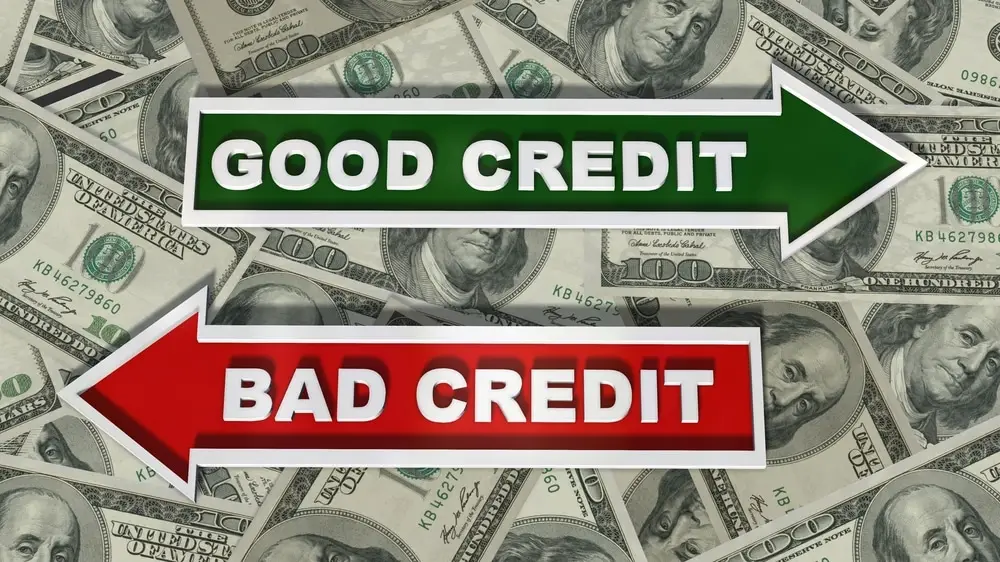Getting the best bonding rate is crucial to your business success, so learning how they work and what factors affect them can really pay off. In this blog post we’ll investigate everything related to surety bond rates – their importance, variability and most importantly, what elements influence the cost you will have to bear. Let’s explore together in order get a new perspective on this issue that could save money for your company!
Key Takeaways
- Understanding bonding rates is essential for businesses to secure favorable rates and protect their enterprise from potential financial losses.
- Bonding rate premiums vary depending on factors such as credit score, bond type, business experience and financial health.
- Shopping around with multiple surety companies and working with a licensed bond agent can help you find the best rate tailored to your needs.
Understanding Bonding Rates

When it comes to surety bonds, understanding the various rates that are involved in bond claims is essential in obtaining a good deal and safeguarding your business from potential losses due to mismanagement or carelessness. Bonding rates determine the coverage you get as well as how much money you’ll need for this type of protection.
So what exactly does a bonding rate refer to? Let’s take an in-depth look into its implications and variability.
What is a Bonding Rate?
When a surety company issues a much does a surety bond, the total amount of the bond is subject to their bonding rate. This figure typically varies from 0.5% to 10%, thus determining what it will cost you for your particular performance bonds and other forms of surety bonds – specifically, how much its premium fee comes out as With the whole bond amount. For instance, if the assigned rate on a $20,000 contractor license contract was 5%, then that would mean spending an extra $1k on top of paying back whatever this sum may be required by law or necessity beforehand .
It’s possible oftentimes to pay such sort of obligations monthly instead at once which makes thorough investigation into relevant type(s) necessary so these can lead one towards obtaining favorable rates plus different premiums over time due to differences between all types other bonds involved in relation thereto ,then again. Fully understanding each factor influencing respective bonding rates is quite imperative when considering ones’ unique situation overall & irespective thereonf eventually expending lesser money downline..
How Bonding Rates Vary
The rates for surety bonds can be quite varied, with the most common range being 1% to 15% of the bond amount. Several factors play a role in determining your own bond premium rate such as credit score, business experience and type of bond you’re looking at obtaining. Riskier ventures often require higher premiums so that these risks are better protected against. Payment or tax bonds will usually involve more expensive fees compared to other types like permit or license requirements on account size and contractor background/credit rating too. Knowing all this could prove useful when it comes down calculating an appropriate bonding rate which suits you best while providing sufficient protection across industries involved in risk-laden projects!
When deciding on a surety bond rate, factors such as credit score and history, type of surety bond required, and the applicant’s business experience along with financial health are all considered. The risk to the underwriter is taken into account through assessing elements like creditscore or past experiences, available working capital, character traits etc., which ultimately impacts the final bonding rate given.
For businesses that have more expertise in their field they can expect lower rates for their respective bonds fromsureties while established companies displaying better finances tend to receive reduced fees too.
Credit Score and History
Having an impressive credit score is vital to receive the best possible surety bond rates, as it reflects positively on a business’s financial stability. Companies that exhibit higher ratings tend to have access to more attractive bonding costs. For those with lower scores, attaining low-rate or court surety bonds can be difficult and expensive. A Credit Score Surety Bond showcases trustworthiness of any company seeking such coverage. Thus acting as a determining factor in setting the rate for this type of protection service.
In order obtain competitive prices when applying for a surety bond, attention needs to be paid towards maintaining good overall credit standing by paying off bills promptly and keeping account balances relatively low at all times Reviewing your reports thoroughly from time-to-time should take place so inaccuracies do not appear unaccounted for which could ultimately lead down an unfavorable route financially speaking going forward into securing ideal surety bond premiums and fees.. In short upholding excellent credentials will reflect favorably during these processes – both now and later – resulting in cost efficient solutions attached coming along side ones applications requiring them under particular scenarios or contractual obligations they may find themselves tied within closer inspection
Type of Surety Bond
When it comes to securing surety bonds, the type of bond plays a significant role in determining your rate. Examples of these payment bonds can range from license and permit types through performance or bid varieties all the way up to court and fidelity options – with each boasting their own level of risk that dictates how much you’ll need to pay for them. Speaking, rates are lowest on licenses/permits while being highest when dealing with courts or fidelity matters. Understanding which specific bond is right for your business will enable you to discover more competitive prices as part of the bonding process overall. Keywords such as ‘type’, ‘bond’ & ‘surety’ must be taken into consideration before continuing this journey successfully so keep them at top-of-mind throughout!
Business Experience and Financial Health
Surety companies utilize elements such as the length of business operation, financial stability and cash flow when they are determining bonding premiums for a new venture. Companies with more experience in their field along with greater economic strength may be eligible to obtain surety bonds at discounted rates compared to those who lack established history or track record within the industry.
To secure better bonded prices, it is important for your company to improve its fiscal standing and demonstrate proficiency within this space. Here are some tips on how you can potentially attain improved rates:
- Highlight prolonged periods of sound fiscal position;
- Make evident professional know-how related specifically in your line of work; 3) Reach out to budget consultants as well as sector experts so that you can gain understanding around factors which could have an effect on pricing – allowing yourself decisions backed by sufficient comprehension..
By putting into practice these advices there is potential increase chance securing beneficial quoted premium amounts from surety providers.
Types of Surety Bonds and Their Bonding Rates

Understanding the various types of surety bonds and their respective bond rates is essential in order to secure a cost-effective agreement. Among these are license & permit, bid & performance, as well as court/fidelity obligations. We will take an in-depth look at each kind of bonded security and the applicable premiums below:
License or permit requirements can vary from state to state but must be taken into account when assessing associated bonding costs. Likewise for Construction bids, Performance Bonds ensure that projects remain on track by safeguarding all stakeholders involved while Fidelity guarantees help cover losses caused by theft or negligence committed by employees with access to funds belonging to another party – both commanding varied levels of premiums accordingly.
License and Permit Bonds
Surety bonds are frequently employed by companies and the most common ones of these type are license and permit bonds. How much they cost is determined according to bond amount, credit score, as well as license sort with costs ranging from 1% to 10%. These licenses may include auto dealer bonds or contractor license bonds – for example a California Contractor License’s cost of a surety bond tends to be in between $102-450 yearly while its typical bonding rate equals 15000$.
In order for one to find good rates when it comes down licensure needs such an individual should research market specifics related/relevant towards their own field & region. Maintain a good credit rating combined with partnering up with trustworthy sureties providers. Once you understand what contributes your desired business’s able prices then making enlightened decisions on how select desirable labeling services will prove considerably more simple.
Performance and Bid Bonds
Performance and bid bonds are surety instruments that must be provided when submitting a bid or being awarded a contract. The cost of such bonds is typically between 0.5% to 4% of the total value. This can also reach up to $100 in certain instances. Factors like project size, credit standing and financial security determine how much will you pay for your total bond amount needed for these types of projects..
For getting more competitive rates on performance/bid bonding fees it’s important to know exactly what requirements need met beforehand as well as having strong credentials including positive credit score before partnering with an established bond provider . This way you’ll make smart decisions about securing desirable prices from quality companies offering optimal rate choices per particular job settings too.
Court and Fidelity Bonds
Surety bonds and court bond rates vary based on the type of bond, credit history and other factors. To get optimal rate for fidelity or court bonds one should maintain a good credit score and hire an accredited surety provider.
When it comes to courts’ requirements concerning bonding, usually they would expect lower rates With those related to fidelity ones. Yet this depends upon personal rating when considering personal credits as decisive factor here – if better is your standing then more likely you will be offered cheaper prices. Knowing all about these elements makes decision-making much easier so that favourable terms can be acquired while engaging someone reliable regarding such financial commitments!
Bonding Rates for Bad Credit Applicants

Having a low credit rating can have disastrous consequences for one’s bonding rates, which may include steeper premiums or the inability to procure certain bonds. But there are ways of improving these terms even when you possess less than ideal credit history.
The subsequent passages will explain the difficulties experienced by those with a poor score and illustrate tactics that could help boost your available bonding opportunities.
Higher Bonding Rates for Bad Credit
Individuals with poor or bad credit can expect increased bonding rates from surety companies as the risk level is higher. Credit rating, experience in running a business, and financial standing are all factors that affect one’s cost for acquiring surety bonds. When there has been past claims filing against them or other legal transgressions occur, then they should brace themselves for skyrocketing premiums when trying to pay surety bonds monthly get bonded. Premium payments for such type of bond usually fluctuate between 4-15%. This largely depends on what kind of bond it is along with its coverage amount and details associated to it.
Though having an unfavorable rate may be disconcerting at first glance, applicants do have means through which they could lower their premium costs if taken seriously into consideration: (1) raise your credit score; (2) pay off debts;(3) ensure timely payment on accounts hold; (4 ) work together with an experienced agent who knows how this game works; & finally look around different providers & compare their offerings so you’ll find yourself getting the best possible deal that caters exactly to your needs!
By incorporating these simple tactics into our strategy planning we would easily manage reduce the charges incurred by us without any major repercussions whatsoever, hence saving ourselves a fortune while securing necessary funds needed urgently..
Tips for Improving Bonding Rates
For those with poor credit, a strategy to improve their bond rates and safeguard financial stability is to focus on elevating the credit score. This can be done through reducing debt levels, adhering to set spending limits and making payments for all accounts punctually. It may also include contacting creditors and requesting that any negative accounts show they are paid off or current in status.
Additional methods of increasing bonding rate comprise improving one’s credibility by demonstrating industry knowledge as well as submitting complete financial statements reflecting an upstanding situation. Seeking guidance from a licensed bond specialist will provide additional insights into how certain factors might contribute towards decreased bonds rates while offering solutions tailored specifically for each individual case at hand seeking improved outcomes . With informed advice directing responsible action plans around finances you have the best chance of obtaining superior quality bonding opportunities leading confidently forward regardless of initial circumstances regarding poor credit scores..
How to Calculate Your Surety Bond Cost

Figuring out how much your surety bond will cost is critical in order to comprehend the total expenditure for your business and guarantee proper coverage.
The following sections explain utilizing a surety bond cost estimate calculator, which can help calculate an estimated amount of money you would need to pay for a surety bond after considering different factors involved in this calculation.
Using a Bond Cost Calculator
When looking to estimate your surety bond costs, a bond cost calculator can provide you with some insight. This tool has bond cost calculated is based on factors such as credit score, the type of bond needed and amount requested. The estimations given by these calculators should not be taken for granted. Rather one should employ an online instant bonding rate giver or consult an expert in bonds for more accurate results.
In order to get better potential rates it’s necessary to take into account important criteria like credit score, specific surety Bond cost change and types along with value being bonded, all adding up towards gaining comprehensive knowledge about what kind of expenses could arise from purchasing a certain sort of surety Bond.. Utilizing this method will allow individuals make wiser decisions when deciding which exact Surety Bonds they need.
Factors to Consider in Your Calculation
When figuring out your surety bond cost, there are many key variables to consider including credit rating, the specific type of surety bond premium required and prior business experience. These factors can have a major impact on the rate charged for bonding – so it’s important to be aware of their effect when selecting an appropriate policy.
By collaborating with a knowledgeable agent who specialises in bonds, you will gain access to more competitive rates that meet your needs specifically. As well being able improve them If possible by improving upon one’s personal credit score or financial standing along with gaining industry related knowledge over time which reduces risk exposure through practical prevention strategies.
Shopping for the Best Bonding Rates

When seeking the most competitive bond rates, it is essential to compare different surety companies and collaborate with a licensed bond agent. This will be detailed in this passage that explains why comparing various bonding firms plays an integral role and how enlisting help from authorized agents could aid you in getting the best deal on your bonds.
Surety bonds act as financial guarantees for businesses or individuals working under contract conditions—as such, shopping around several surety providers helps ensure one can access optimal pricing options. By partnering up with certified agents they have
Comparing Surety Bond Companies
When researching surety bonds, it is important to evaluate different providers and obtain the best rate tailored for your needs. To ensure you are making an informed decision about which bond company offers the most suitable options for you, consider their reputation, customer service reviews and if they provide bonds that meet industry requirements. Doing this homework can save money in the long run and help support success of a business venture with respect to acquiring bonding services.
By shopping around surety companies when looking at rates will lead to finding ideal ones specialized towards individual circumstances, allowing individuals to purchase protection against potential losses without breaking budget constraints or sacrificing quality coverage from reliable bond suppliers who offer outstanding assistance along every step of way process.
Working with a Licensed Bond Agent
Working with a licensed bonding agent can provide numerous benefits, such as expert advice and assistance in procuring the most favorable rates. They also possess extensive knowledge of the surety market to identify any potential challenges that may arise throughout this process. They are able to assist you by finding rate quotes suited for your specific needs while helping you understand factors impacting them so you can take proactive steps towards improving credit health – ensuring more competitive prices and greater security for your business operations going forward.
Summary
In summary, it is essential for any business owner to be aware of the rates associated with securing a surety bond. Familiarizing oneself with how these rates are impacted, researching all necessary requirements that contract surety bonds in their industry entails and collaborating with an authorized bond agent can help secure more economical deals while protecting your venture from potential economic losses. Though this may seem overwhelming at first glance, dedicating time to understanding these processes and seeking advice could benefit you in terms of cost-saving measures as well as successful operation running altogether.
Frequently Asked Questions
What is a typical bond rate?
The range of bond rates commonly fluctuates from 1-5%, depending on the specific amount for which you’ve contracted or bought a bond.
What is bond rate in construction?
The bond rate in construction typically ranges from 7-2.5%, but can go higher depending on various factors.
What is a bond rate in insurance?
The percentage of the bond amount set as a premium to be paid for a surety bond is referred to as its rate. This varies from 0.5% up to 10%, according by the risk associated with it, assessed based on the applicant’s credit score and financial standing Their industry experience evaluated by the surety company issuing said surety bonds cost them. The type of this kind of coverage can also have an impact on such pricing too.
What is your company’s bond rate per $1000.00 in contract value?
The bond rate we typically offer is $25.00 per each thousand dollars of the contract’s worth contract bonds, which equates to 5-4% of its total value.
Is a surety bond worth it?
Surety bonds are a fantastic option for businesses, as they bolster their reputation and reliability while being higher risk and also aiding compliance. Customers place trust in firms that offer these investments due to the added security it provides.



